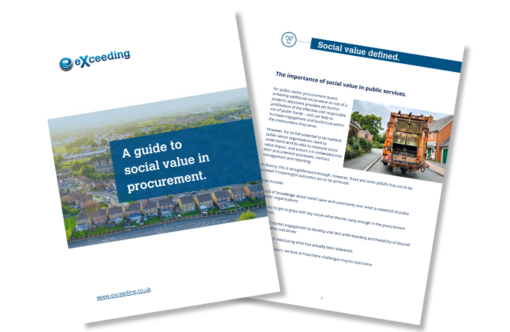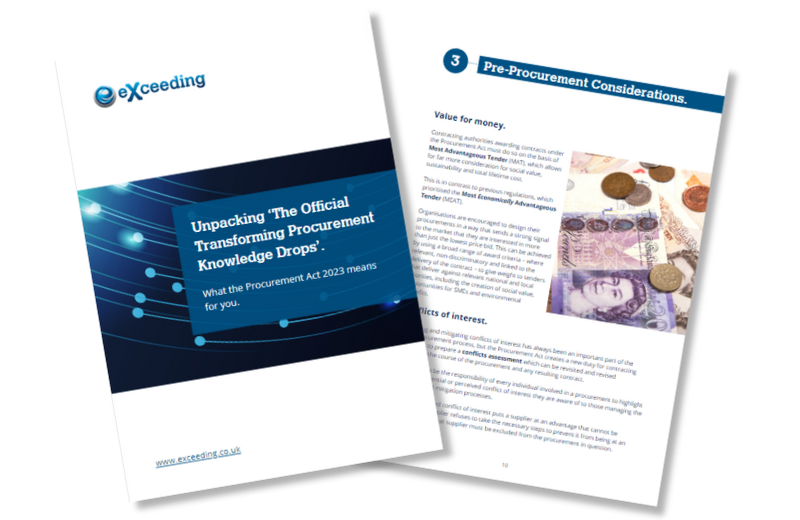Governments worldwide have pledged to bolster their support for small and medium-sized enterprises (SMEs), recognising their vital role in driving economic growth. In the UK alone, an estimated 5.6 million SMEs were recorded in 2023 contributing to over half of the turnover of the UK private sector.
One way to achieve the Government’s pledge is by leveraging public sector procurement as a catalyst for SME expansion. While some progress has been made, there remains a pressing need for improved action to meet established targets.
Public procurement makes up a significant portion of government expenditure and a substantial segment of the overall economy. By actively engaging with start-ups and small businesses, public sector organisations can act as a catalyst for their growth. Contracts awarded by the public sector offer stability and reliability, encouraging SME businesses to enhance their efficiency and productivity to meet the demands of larger clients. Additionally, the government’s reputation as a prompt payer, settling invoices within a 30-day target window, ensures steady cash flow for suppliers.
This relationship not only stimulates financial growth within the SME sector but also fosters innovation through the introduction of agile and inventive solutions to address public sector challenges. The ripple effect extends beyond the SMEs themselves, ultimately benefiting taxpayers by optimising resource allocation.
Over the past decade, steps have been taken to streamline procurement procedures and create a more conducive environment for SMEs to compete. Reforms such as abolishing pre-qualification questionnaires and revising insurance requirements have facilitated greater SME inclusion in procurement opportunities and the advent of digital platforms has simplified the bidding process, enabling companies to create comprehensive profiles that streamline the selection process for buyers.
Encouragingly, data from the Cabinet Office indicates an upward trend, with SMEs capturing approximately 26% of central government spending in 2021-22, amounting to £19 billion, with a projected increase in the following years.
How the Procurement Act will help SMEs
The imminent introduction of the Procurement Act in October 2024 signals a renewed commitment to modernise public sector procurement practices and optimise resource allocation for public services. In one news article, Cabinet Office Minister Baroness Neville-Rolfe commented, “I am particularly pleased to help small and medium sized businesses secure a greater share of nearly £300 billion worth of government contracts.”
The Procurement Act introduces some key benefits for SME suppliers, including:
- Protection against national security risks with the introduction of a public department list for high-risk suppliers. This also gives SMEs the confidence to bid for non-sensitive contracts.
- Avoiding upfront costs and reducing barriers for SMEs by allowing evidence of required insurance cover at the point of contract award rather than during bidding.
- Driving value and innovation by reducing red tape, adding flexibility to price negotiations and focusing on value rather than cost.
- Adding ethical considerations into procurement by adding the ability to exclude suppliers based on past performance or professional misconduct.
- Creating a more secure marketplace through a new National Security Unit for Procurement.
4 Tips for public sector procurement teams to promote SME engagement
As the Procurement Act continues to be defined, there are some steps that procurement teams can be considering now to actively encourage participation from SME businesses:
- Tailor communication:
Engage in pre-engagement communication with SMEs to discuss upcoming opportunities and assess their business capabilities. This dialogue can uncover innovative solutions that may not have been previously considered, ultimately enhancing value for procurement processes. Additionally, providing feedback to unsuccessful bidders enables them to understand areas for improvement.
- Streamline documentation:
Simplify Invitations to Tender (ITT) by using clear and straightforward language, preferably in plain English. By making procurement opportunities easily accessible, SMEs are more likely to participate. Avoid over-specifying requirements, and ensure that lotting structures and policies are relevant and non-restrictive.
- Consider your award weightings:
Incorporate social value considerations into tender evaluations, adjusting weightings to align with organisational priorities. It’s worth noting that it’s important not to make your requirements overly challenging, as this can increase costs and deter SME participation.
- Encourage fair and open opportunities:
Ensure that your procurement opportunities are accessible to SMEs by tailoring requirements to their capacity. While some projects may be too large for individual SMEs, encourage consortium bidding as a viable option. Providing guidance on consortium bidding enhances understanding and facilitates SME navigation through the procurement process.
Through concerted action, public sector procurement teams can unlock the full potential of SMEs as engines of economic growth and innovation, and help to boost social value with the communities they serve.
If you’d like more guidance on how to encourage more SME participation in your tenders, or would like to better understand how the Procurement Act will influence your procurement processes, we’d be more than happy to assist. Just drop us an email or give us a call on 0330 088 1620 and our public sector procurement experts will be happy to help.





